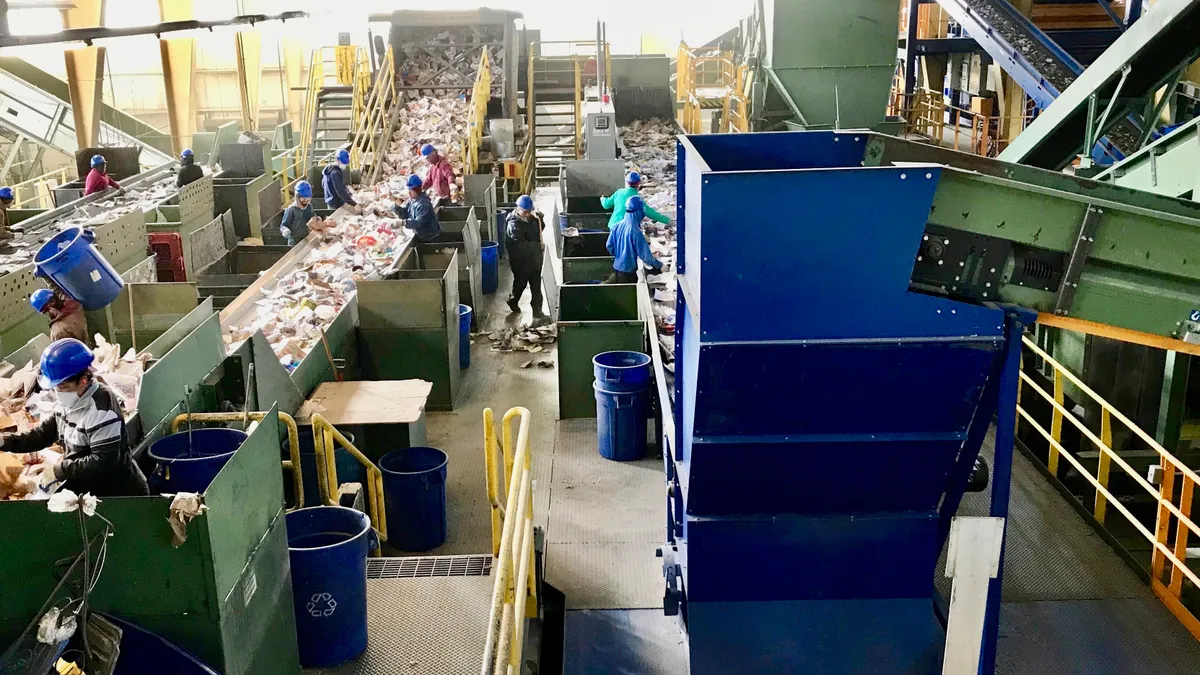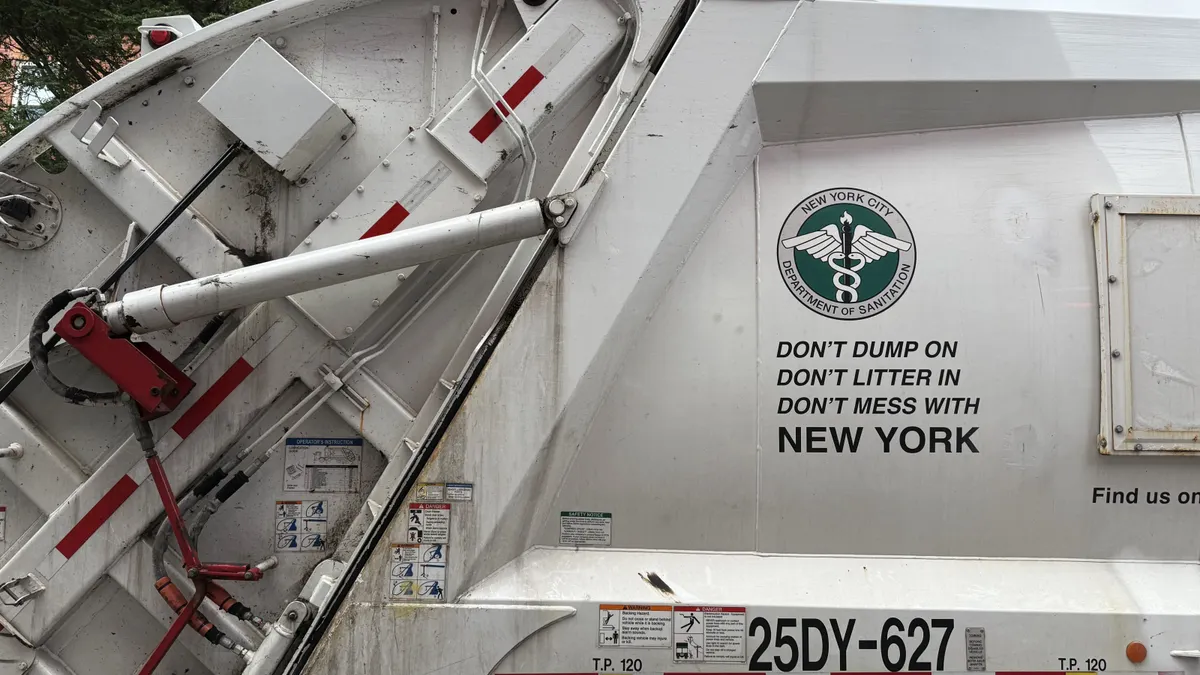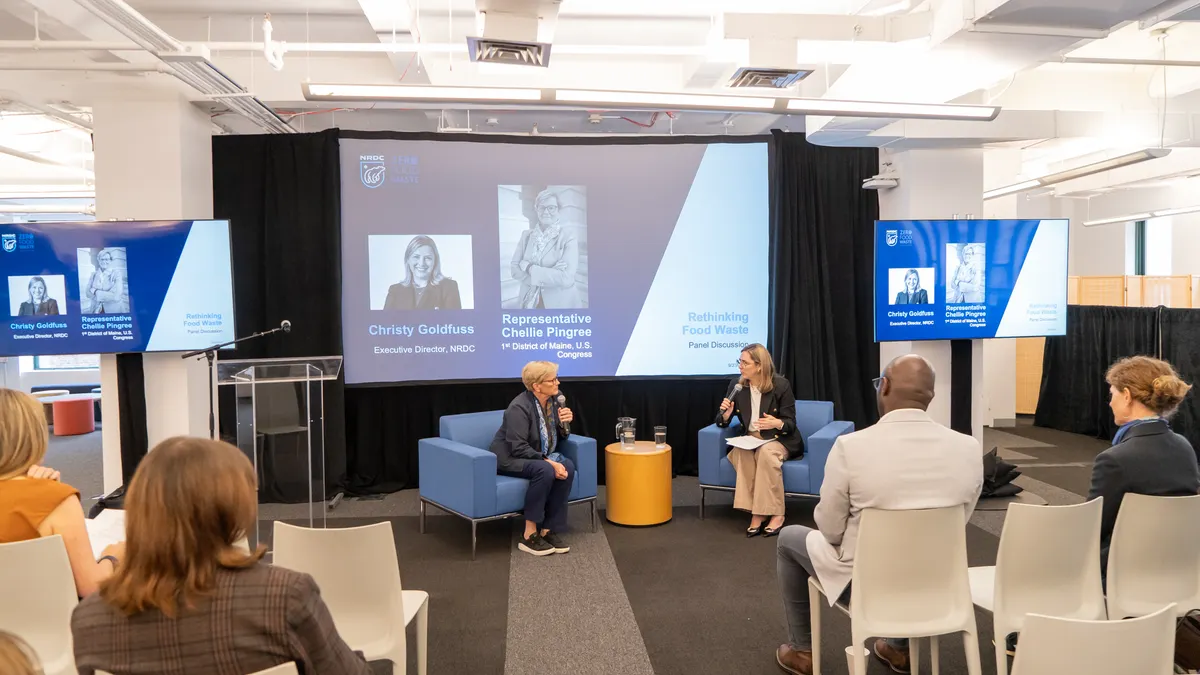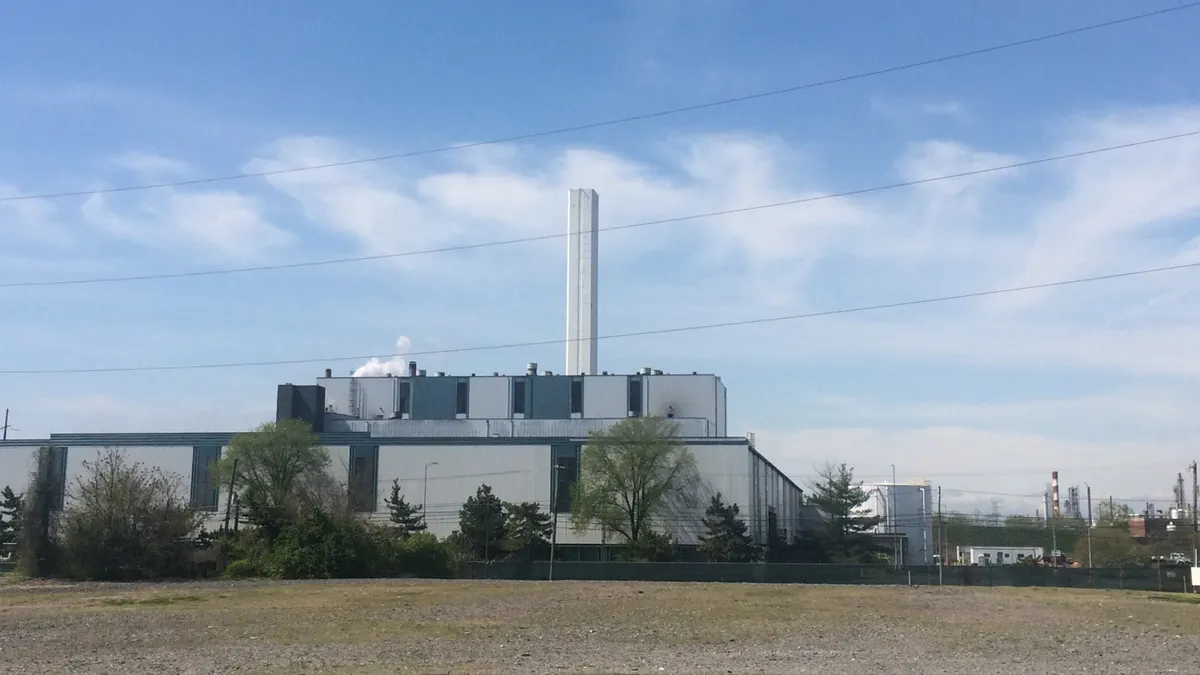Editor's Note: This piece was written by Emily Coven, Director of Recyclist. The opinions represented in this piece are independent of Waste Dive's views.
As cities across the country, from Los Angeles to New York City, take "zero waste" pledges, it is clear that "zero waste" is transforming from a trend into a movement. From a sustainability perspective, the central goal of most "zero waste" initiatives — achieving 90 percent diversion — is a clear winner.
But from a communications perspective, "zero waste" is still unclear and potentially confusing. Not only does the term "zero waste" not necessarily mean what it says, but it can be polarizing. How can we most effectively communicate the waste reduction message encapsulated in the term "zero waste"? Do we need the term "zero waste" to guide our consumption and waste behaviors, or are we better off without it?
What does "zero waste" mean to the average consumer?
At Recyclist, we conducted an informal poll asking people that very question. We found that most people we spoke with, regardless of age or education, can imagine what "zero waste" is referring to, even if they don’t know exactly.
These findings are corroborated by the years of experience of Kate Bailey, a program director at Eco-Cycle, an organization that implements "zero waste" solutions in local communities around the country. Bailey likes the term "zero waste" because it's approachable and understandable.
In other words, the phrase "zero waste" can be a great tool for your outreach because it's easy to understand. Most residents can easily picture what "zero waste" might look like.

"Similar terms — circular economy and sustainable materials management — are industry terms. They're very big, very lofty, and the citizen's role in phrases like those is unclear. Folks on the ground can get a visual of what zero trash means: Composting, repairing, recycling," Bailey said. "They can understand it in their own life and the community as well."
In other words, the phrase "zero waste" can be a great tool for your outreach because it's easy to understand. Most residents can easily picture what "zero waste" might look like.
However, there can be some pushback against the term. In an informal poll, we spoke with individuals who said that "zero waste" — as in absolutely no waste, ever — is impossible. Because of this, they think of the term as misleading.
Cathleen Hall, Solid Waste Manager of Pitkin County, Colorado, remarked that, when a "zero waste" plan was proposed for her county, where the landfill is predicted to last only another 11-12 years, elected officials were confused. They wanted to know why they should waste time expanding the landfill if waste was going to stop being generated. The term upset haulers, too. If there’s no trash, what are they going to do?
In addition to the "zero" problem, a lot of pushback comes from the "no burn" aspect of "zero waste," which is part of the official definition from the Zero Waste International Alliance (ZWIA). In order to be recognized as "zero waste" by ZWIA, a community needs to commit either to not burning any of its trash or to discontinuing its trash incineration contracts. Because of this, a community might be addressing important aspects of a "zero waste" plan, such as upstream materials use, but not recognized as "zero waste" because of its trash contracts.
What can you do to address pushback to "zero waste"?
You can clarify that zero is a goal, not an immediate reality.
"We emphasize that 'zero waste' is a journey, not a destination," Bailey said. "We call it 'zero waste or darn near.' It's about always trying to get better and move closer to zero, and we don't fixate on the zero aspect of it."
You also can craft a long-term plan detailing what steps the community will take in order to reach specific goals by specific dates. Eco-Cycle, for instance, provides the Community Roadmap resource — a 10-year community plan full of the kinds of policies and timelines that community officials and stakeholders are used to looking at. According to Bailey, offering a detailed plan "really reduces people’s alarm about "'zero waste.'"
And while admittedly somewhat counterintuitive, you can otherwise strive for "zero waste" while avoiding the term "zero waste" altogether. Don’t worry about the label — just pursue it.
What are alternatives to using the term "zero waste"?
If you're not yet able to pursue "zero waste" in your community, or your elected officials or superiors have not embraced that term, don't write it off entirely. Learning about the "zero waste" approach can still help increase your waste diversion efforts, whatever your goals are. If you're in that situation, here are some options for you to consider:
Consider how climate change and economic accountability are related. You can try to pass a self-reliance or climate change plan that outlines how a community’s financial prosperity depends on being sensitive to environmental issues. For instance, if you can get a 75% waste diversion goal written into your municipality’s new economic development plan, it will be easier to gain support when jumpstarting initiatives that aim to meet any of the plan’s stated goals.
A third option is to work on developing new policies and programs that work toward "zero waste," and wait to introduce more aggressive goals or the "zero waste" label until you can show your elected officials how much progress you've made already.

A second option is a Waste Diversion Plan, which is what Hall proposed for Pitkin County. After conducting a waste audit, the county found that 53% of what was being landfilled could have been diverted through existing recycling programs. With that in mind, they set a goal to divert 42 percent of their current waste stream.
"We got a little bit easier buy-in when we went away from ['zero waste']," Hall said. "And we didn't have to answer questions like, 'When do you think we're going to meet zero waste?' It eliminated a lot of questions, and calmed the fears of those who make their living off of trash."
A third option is to work on developing new policies and programs that work toward "zero waste," and wait to introduce more aggressive goals or the "zero waste" label until you can show your elected officials how much progress you've made already. Begin by addressing the current values or motivations of your community, such as food donations, savings for local businesses, or creating more jobs.
Once a community gets behind a "zero waste"-related initiative and experiences success with it, they are more likely to understand the range of benefits that come from having a "zero waste" goal. Try the EPA's Managing and Transforming Waste Streams tool, which showcases 100 different measures that communities can use to reduce waste and recover resources. It includes 300 implementation examples from across the country, from local ordinances to program websites to hauler contract language.
Are there drawbacks to avoiding the term "zero waste"?
Without a "zero waste" goal, communities may be more likely to continue on traditional trajectories, such as focusing their waste reduction efforts entirely on recycling.
"'Zero waste' isn't just about recycling as much as possible," Bailey says. "It's about changing our systems to redesign products to make them using fewer resources, using less toxic materials and more reusable and recyclable materials in the first place."
According to Hall, adopting a waste diversion plan instead of a "zero waste" plan has not been limiting. "We're still going to set incremental goals and get as close to 'zero waste' as possible — it's just going to be under a different name to not confuse people who aren't in the solid waste industry," Hall said. "Pitkin County's board of commissioners is behind our diversion goals."
However, if "zero waste" is a possible goal for your community, it's well worth pursuing. As an aspirational symbol, it has been inspiring new ideas and lifestyles since its inception. You'd also be in good company — at least 100 communities in the U.S. have adopted a "zero waste" goal. ZWIA board member Gary Liss points out that "For those who want to join the vanguard, it’s been an incredibly helpful term."
A "zero waste" plan helps communities save money and reduce greenhouse gas emissions in addition to other types of pollution. It also allows them to reinvest resources locally, which creates jobs and increases the value of their community.
Regardless of what kind of language you use, the critical step in any new plan will always be garnering internal support from government officials (or corporate, for business), and setting achievable goals. If the phrase "zero waste" will give your community a transparent rallying point that acts as an incentive and guide for local policy, then work to implement a "zero waste" goal. If you meet with more pushback than support, your public-facing campaign can always hinge on a different phrase. Ultimately, language needs to resonate with your audience in order to be successful.

















